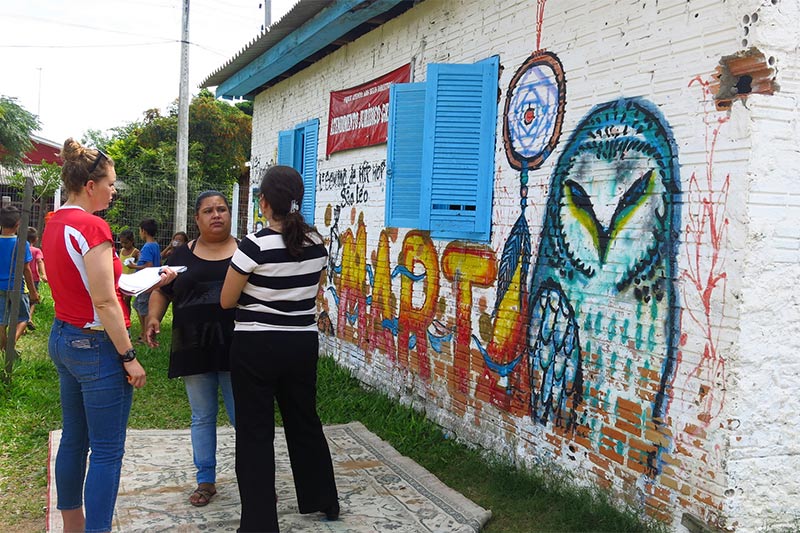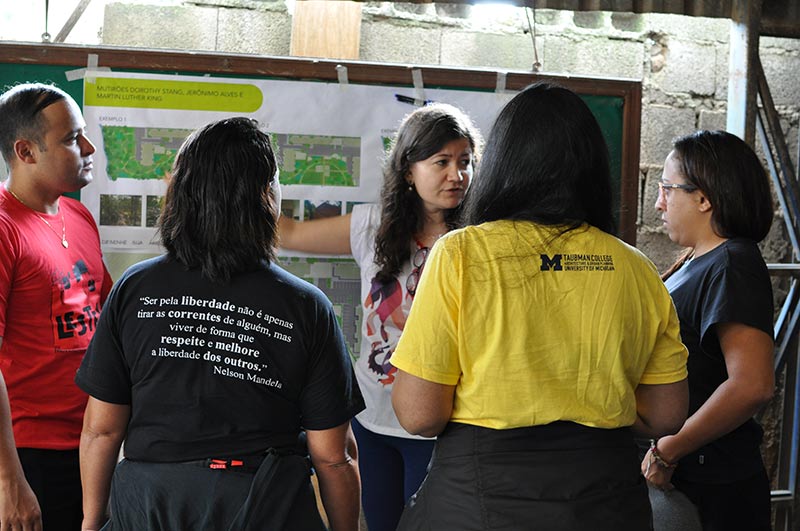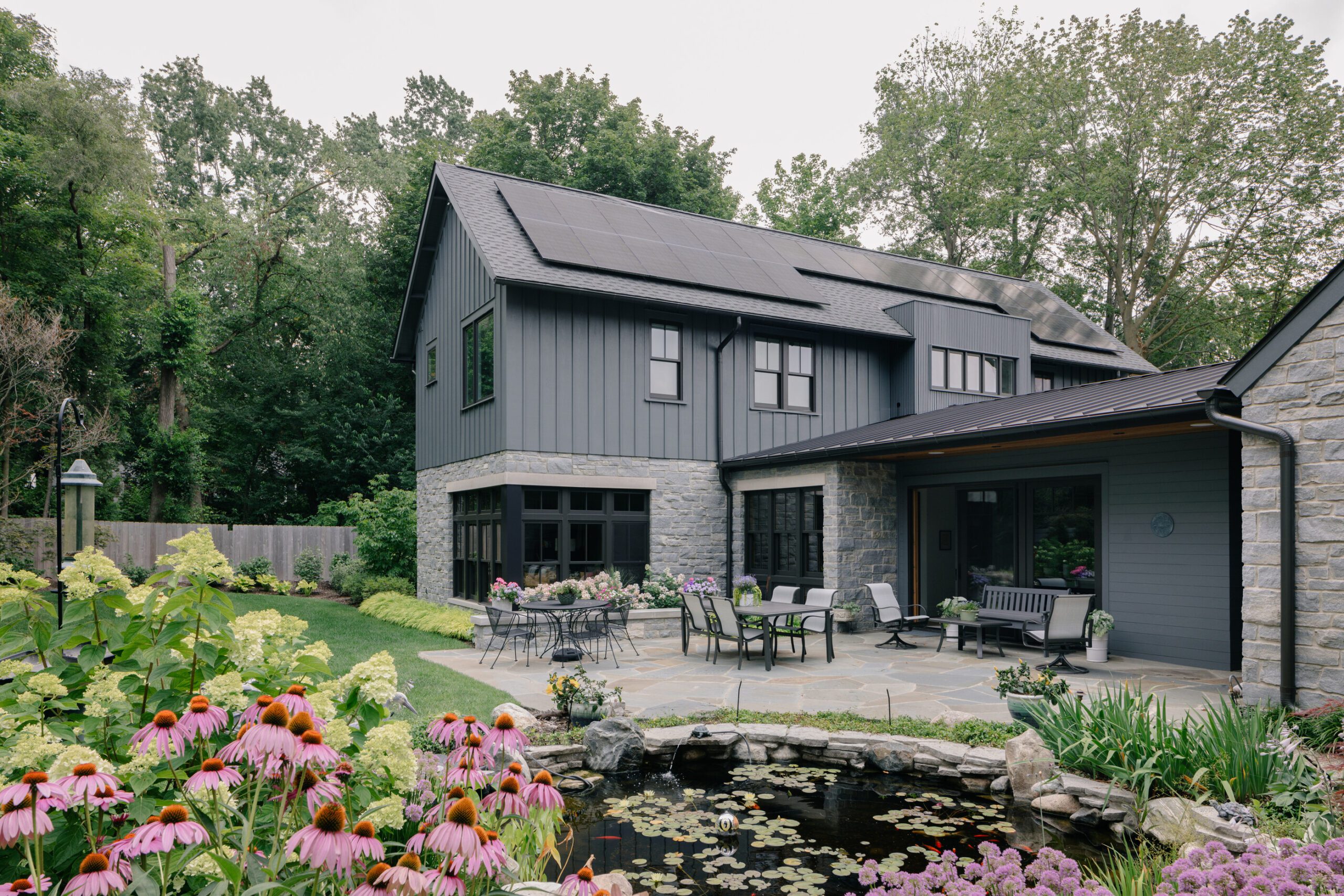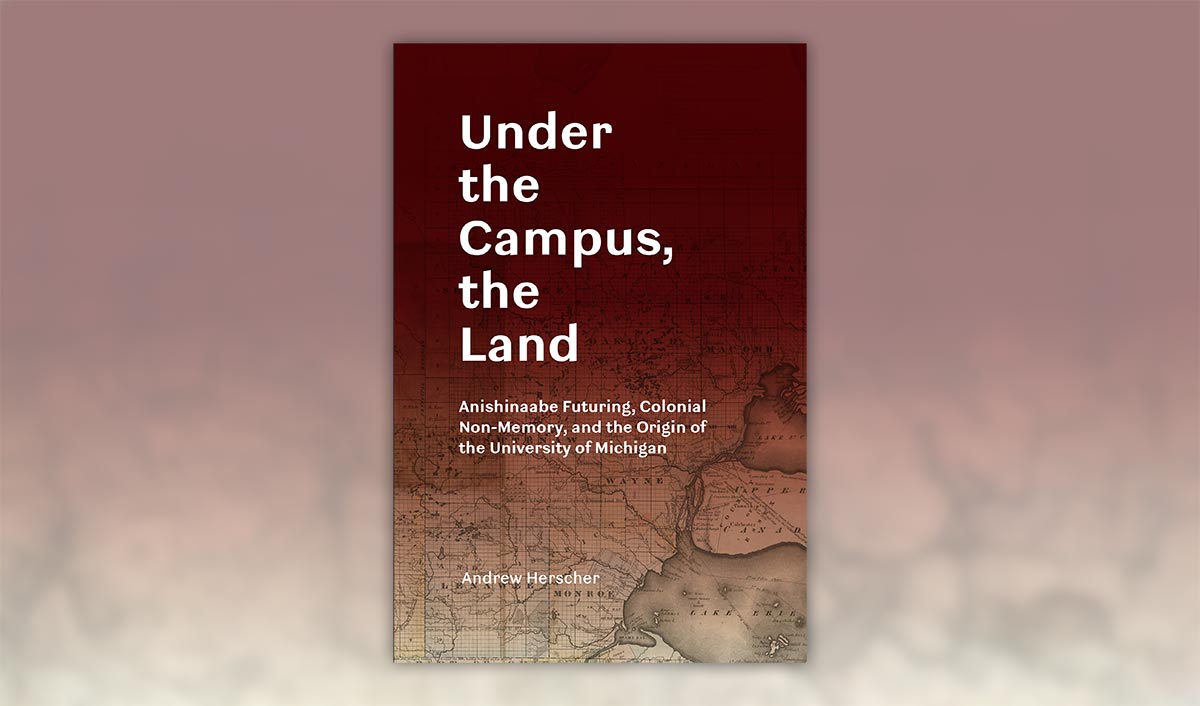
Pimentel Walker Knows All Issues Are Global Issues
Growing up in a small town in southern Brazil, Ana Paula Pimentel Walker witnessed firsthand the hardships endured by struggling, low-income families who lived in disenfranchised communities with few services and limited opportunities for self-betterment.
Her grandmother labored as a housekeeper after she was evicted from a tenant farm. As a child, her mother had to move into an orphanage and was hospitalized for malnutrition. Her father, a railroad mechanic, took part in labor strikes to gain more rights and better pay for workers.
“By age 13, I was already involved in the social movement for gender justice and agrarian reform,” recalls Pimentel Walker, an assistant professor of urban and regional planning at Taubman College. She says her mother, who overcame her difficult childhood and became a lawyer, instilled the value of education in her children.
Pimentel Walker’s family background motivated her to pursue an academic career in law, urban planning, Latin American studies, and anthropology. It also influenced her current research and teaching at Taubman College.
Today, Pimentel Walker is spearheading research and capacity-building projects with minority and marginalized communities in both Brazil and Michigan. She also studies participatory budgeting and urban policy councils to determine the role they play in publicizing policy issues and advancing democratic inclusion.
“I want to learn how migrants, refugees, and low-income residents in these communities view their city, make decisions about improving their built environment, and organize to demand rights from the state,” Pimentel Walker says. “If we as planners and planning scholars can capture their wisdom and local knowledge, we can co-produce plans and planning strategies that will be more socially and environmentally just and more effective.”
Healthier Environments and Legal Rights in Brazil
 In São Paulo, she is working with homeless families who have built new, informal settlements on environmentally sensitive land and are seeking to upgrade their living conditions. Often these people have low-paying jobs, so they cannot afford to pay the high rent for dilapidated shacks in the long-established favelas, or shantytowns.
In São Paulo, she is working with homeless families who have built new, informal settlements on environmentally sensitive land and are seeking to upgrade their living conditions. Often these people have low-paying jobs, so they cannot afford to pay the high rent for dilapidated shacks in the long-established favelas, or shantytowns.
“If these early land occupiers are not well organized, they may be evicted and become homeless again, leaving the land polluted,” Pimentel Walker says. “We want them to create environmental-justice discourse and to use environmental tools to build a healthier environment and infrastructure for residents that has basic, environmentally sustainable sanitation.”
Much of Pimentel Walker’s work in Brazil is in partnership with her Taubman College faculty colleague María Arquero de Alarcón. They are collaborating with a network of social movements, human rights organizations, and universities in São Paulo to advance housing justice.
One project focuses on analyzing court cases that determine the fate of informal settlements. In some cases, judges enforce eviction of the early land occupiers. In others, they allow the informal settlements to remain and to upgrade their infrastructure. These judicial decisions may or may not include an environmental-restoration plan to repair the degradation of the land and waterways.
“What we’re seeing in these court cases is the criminalization of informal dwellers, which is both wrong and poor planning,” Pimentel Walker says. “The people’s right to housing security and settlement upgrades can be aligned with environmental planning and recovery. These two things can be done together.”
Strengthening Support for Migrants in Michigan
Closer to home, Pimentel Walker is conducting what she terms community-based participatory action research and projects driven by the needs of migrant-run organizations (MROs) in Michigan.
Based on a survey of 16 MROs around the state, she has documented the broad range of services these groups provide for refugees, undocumented workers, and other immigrants. These services include finding temporary or permanent housing for families, leveraging public transit to help people without driver’s licenses, and providing English language and vocational education.
“We help to strengthen the capacity of MROs, identify resources and opportunities for them, and raise government awareness about partnering with these organizations to help them better serve their constituents,” says Pimentel Walker, who works closely with Odessa Gonzalez and Mieko Yoshihama at U-M’s School of Social Work.
Bringing Students Face-to-Face with Global Issues
At Taubman College, she brings her knowledge and experience into the classroom and often connects students with minority-serving organizations in Michigan and Brazil. Her course assignments are intended to align students’ classroom learning with the real-time needs of disenfranchised communities.
For example, students in her participatory planning course authored an opinion for a Brazilian court case involving the eviction of informal dwellers from vacant land. Others researched and wrote a federal grant to help an MRO procure funding for mental health services and English as a second language classes. Over the last two years, her students have worked with the United Nations on climate change planning in Colombia.

Since 2015, Pimentel Walker has taken small groups of students in her capstone course, International Service Learning, to Brazil for two weeks during the semester to work on community projects with marginalized residents. Many students return in the summer to support project implementation.
“All of these projects deal with issues at the core of urban planning,” she says, “like how to build affordable housing, how to engage low-income families in the decision-making process, and how to empower self-managed communities to improve conditions for residents.”
Through their project work, students learn to co-produce plans with client-partners in Brazil’s housing movements and to achieve synergies by combining local knowledge with the technical expertise they gained in the classroom. This ground-up collaboration can help urban planners avoid “top-down” strategies that historically have produced inequality and segregation.
“It is important for students to have hands-on experience and to use their skills to advance the priorities of their client-partners,” Pimentel Walker says. “We live in a global society, so what happens in informal settlements in São Paulo is relevant to Michigan. These global issues can no longer be contained.”
For one project, students worked with a K-8 public school and an informal-dwellers association in the town of São Leopoldo to renovate playground equipment in a local park, improve signage in the settlement, and set up a wireless mesh network. Assisted by Ford Motor Company and Dow Fellowship grants, the student team also developed and implemented initiatives to improve waste management and public spaces.
In another project in São Paulo, students partnered with informal dwellers and the Gaspar Garcia Center for Human Rights to build a community center, pilot a decentralized sewage system, and create a plan for upgrading the settlement. To gain a better understanding of the needs of the homeless, a student team collaborated with the Roofless Workers Movement to conduct household surveys of their land occupations.
More recently, in collaboration with the Union of Housing Movements, students created an advocacy campaign to support a pending bill in the Brazilian Congress that would legalize and provide resources for self-managed, community-built, low-income housing projects nationally. In addition, they developed a strategy to improve the green areas of existing and future self-managed housing settlements.
In 2021, a Taubman College student team won the national Outstanding Student Project Award from the American Planning Association for their 2020 capstone project, “Self-Management Law, Now! Fostering Community-Owned, Permanently Affordable and Sustainable Housing in Brazil.”
“My goal is to have students understand that the issues we face are global issues,” Pimentel Walker says. “I also want to show them that the issues they care about and the values they hold are applicable, and that they can use their training to serve in the area of racial justice, social justice, and climate justice.”
— Claudia Capos









